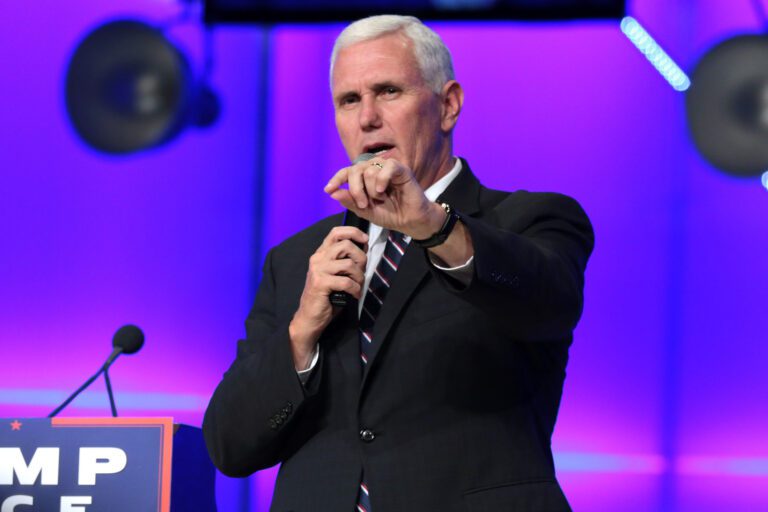Presidential election experts say Mike Pence's religious beliefs are very much part of his political agenda
BOSTON — Last month's election was a blessing for religious Americans.
For Keith Matthew Mlyniec, lead pastor of Harbor Church, a nondenominational church in West Kingston, Rhode Island, Vice President-elect Mike Pence is a strong Christian who will help President-elect Donald Trump “lead Christians in the United States more toward divine ways”.
Throughout Pence's political career, his efforts to combine his religious views with his politics — from anti-abortion legislation and sex education to the fight for gay rights — have won him a large following of conservative Christians. in Indiana and across the country, and that support followed him and Trump to the polls last month. According Pew Research Center81 percent of white evangelical Christians voted for Trump over Clinton in the 2016 presidential election.
Alan Schroeder, a journalism professor and presidential election expert at Northeastern University, says that for many Christian voters, Mike Pence was one of the factors that made them vote for Trump.
“Usually people don't vote because of the vice president, but this is a factor,” Schroeder said. “For some people, it would be important to have a vice president like Pence who is very religious and very Christian.”
Schroeder describes Pence's governing style as “using his religion as part of his politics.” This is no more evident than in his anti-abortion legislation. This March, Pence signed a law which prohibits abortions because of fetal abnormalities, sex, or race. It is one of the most restrictive abortion laws in the country. “I signed this law with a prayer that God will continue to bless these precious children, mother and families,” Pence said after signing the law.
“I think, as governor of Indiana, Pence's religious beliefs are very much part of his political priorities,” Schroeder said. “I don't think it's appropriate for a politician's religious preferences to become public policy.”
But Pence's lifelong, strong anti-abortion stance works for many white evangelical Christians like Mlyniec.
“I think the law that says you shall not kill innocent life is biblical. So it would be good to go into the future,” said Mlyniec. “I have three children and seven grandchildren. Do I want them to grow up in a country that has more Godly laws rather than less Godly laws? Yes, I want more.”
As for Trump and Pence's future plans on abortion, Schroeder says it's possible some of those religious beliefs will now become part of the political conversation.
“It's possible, I guess, that if Trump really wants to fight the abortion issue, he might go for it,” Schroeder said. “But of course it's not Trump and Pence who will pass laws. Congress must take this decision to change the law.”
That congressional support may be harder to muster. Although Pence has captured a large number of pro-life voters, Schroeder believes the majority of voters in the United States believe a woman should have the right to an abortion. Indeed, a majority of Americans believe abortion should be legal, according to Pew Research Center. That freedom to have an abortion could be eroded state by state if Pence pursues legislation similar to Indiana's.
“My guess is that some states will probably choose a more restrictive policy [on abortion] and others like Massachusetts, for example, will still have fairly liberal policies,” Schroeder said. “It totally depends on where you live and whether you have access to choose abortion as an option.”



